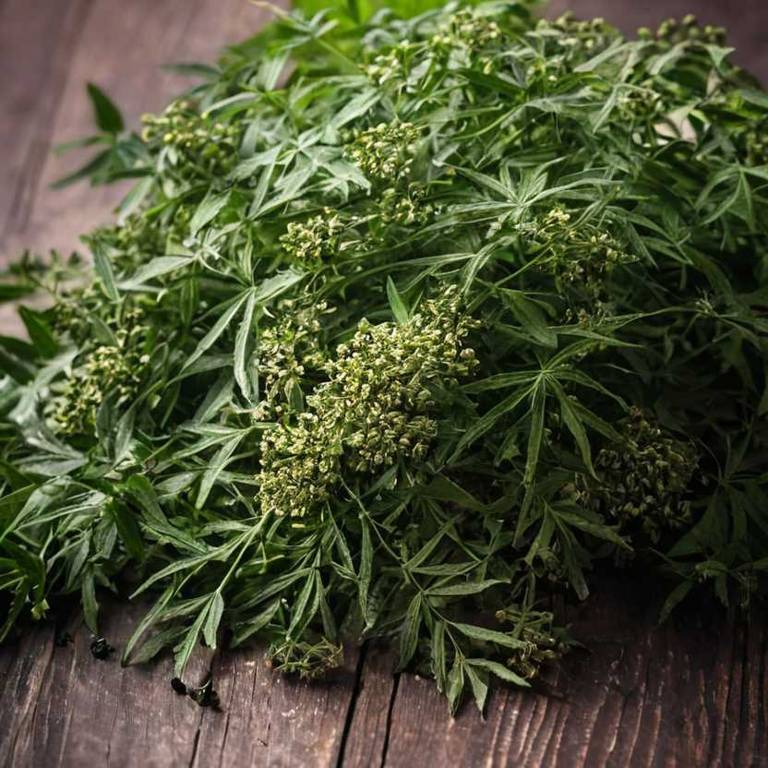By Leen Randell
Updated: Jul 05, 2024
What Are The Medicinal Properties Of Sambucus Nigra (Elder)?

Sambucus nigra, also known as elder, has health benefits such as reducing fever and relieving cold and flu symptoms.
The medicinal constituents of elder include flavonoids, anthocyanins, and terpenes, which contribute to its anti-inflammatory and antioxidant properties. Elder is often made into a syrup or wine for medicinal use, or dried to make a herbal tea. Possible side effects include gastrointestinal upset and allergic reactions.
Precautions include using elder in moderation and avoiding it during pregnancy and breastfeeding.
This article explains the health benefits, active constituents, medicinal preparations, possible side effects, and precautions related to Sambucus nigra.
What are the health benefits of Sambucus nigra?
Sambucus nigra, also known as elder, has health benefits such as reducing inflammation and relieving symptoms of respiratory issues like colds and flu.
The flowers and berries are rich in antioxidants, flavonoids, and anthocyanins, which may help boost the immune system and protect against cell damage.
Some studies suggest that elder may also help to soothe digestive issues and alleviate symptoms of allergies and hay fever.
Here's a detailed article about the 10 health benefits of Sambucus nigra.
What are the active constituents of Sambucus nigra?
Sambucus nigra, also known as elder, has active constituents such as flavonoids, alkaloids, and anthocyanins, which contribute to its medicinal properties.
The berries contain anthocyanins, responsible for their antioxidant and anti-inflammatory effects. Flavonoids, including quercetin and isorhamnetin, possess antimicrobial and anti-inflammatory activities.
Alkaloids, including sambunigrine and sambunigrine, have been shown to have anti-inflammatory and immunomodulatory effects, making elder a valuable natural remedy for various health conditions.
Here's a detailed article about the 10 active constituents of Sambucus nigra.
What are the medicinal preparations of Sambucus nigra?
Sambucus nigra, also known as elder, has medicinal preparations such as elderberry syrup, tea, and infusions that have been used to alleviate symptoms of colds, flu, and hay fever.
The berries, flowers, and leaves of the plant are rich in antioxidants and flavonoids, which have anti-inflammatory and antiviral properties.
Elderberry syrup is often used to boost the immune system and reduce inflammation in the throat and sinuses.
Here's a detailed article about the 10 medicinal preparations of Sambucus nigra.
What are the possible side effect of using Sambucus nigra improperly?
Improper use of Sambucus nigra, also known as elder, increases the chances of experiencing side effects such as gastrointestinal upset, nausea, and diarrhea.
In rare cases, it may also cause allergic reactions, such as hives, itching, and difficulty breathing.
Additionally, individuals with certain medical conditions, like kidney disease, or taking certain medications, like blood thinners, should consult a healthcare professional before using Sambucus nigra to avoid adverse interactions.
Here's a detailed article about the 10 most common side effects of Sambucus nigra.
What precautions to take when using Sambucus nigra medicinally?
Before using Sambucus nigra, also known as elder, for medicinal purposes, you must take precautions such as identifying the plant correctly to avoid toxicity.
Fresh flowers and berries can cause nausea, vomiting, and diarrhea, while unripe berries are particularly toxic.
Consult with a healthcare professional before using elder to treat fever, colds, or flu, and monitor for potential interactions with medications or allergies.
Here's a detailed article about 10 precautions to take when using Sambucus nigra.